Our content is reader supported, which means when you buy from links you click on, we may earn a commission.
How Ryan Desmond Started a Family-Run Coding Boot Camp Competing with Investor-Owned Boot Camps
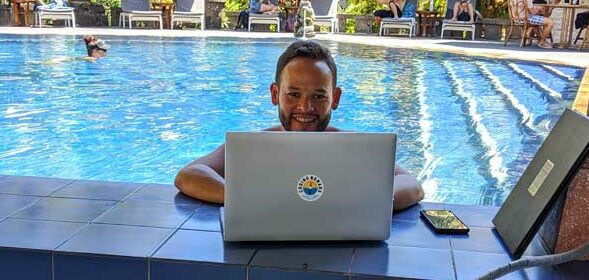
- Who: Ryan Desmond
- Website: codingnomads.co
- Course Topic: Software Coding
- Interesting Stats: Offers 24/7 support to clients
Who are you and what course have you created?
I’m a co-founder and CEO of CodingNomads, an international tech education, and training company. We started in 2017 when I created a Java Software Engineering Course to help students learn to code and transition into technical careers.
Since then, together with my team at CodingNomads, we’ve built additional software engineering courses in Python, Data Science + Machine Learning, Django, Flask, JavaScript, Git & GitHub, SQL and Databases, Upwork Freelance Mastery, and more. We also have several additional advanced coding courses under development!
What market does your online course serve?
Our courses serve anyone who wants to learn software engineering skills. Whether you want to augment your current career, change careers entirely, or build your own ideas as an entrepreneur or hobbyist.
Many of our students have tried learning to code on their own, but got stuck in “tutorial purgatory”. Or sometimes they weren’t making enough progress to qualify for professional work. Most have no coding experience at all but are intrigued by engineering and want to contribute directly to technical projects.
Our students come from all walks of life and from countries all over the world. Many of our students have university degrees in another area of study. But because of the demand for software engineers, a university degree is not necessary to attend our courses, nor to get a job as an engineer thereafter. We’ve had students aged 18 – 60 who have succeeded in our courses.
The biggest success factors for our students are motivation and determination. If you put in the time and demonstrate that you can do the work, you can make great money and have a rewarding career as a software engineer within a year.
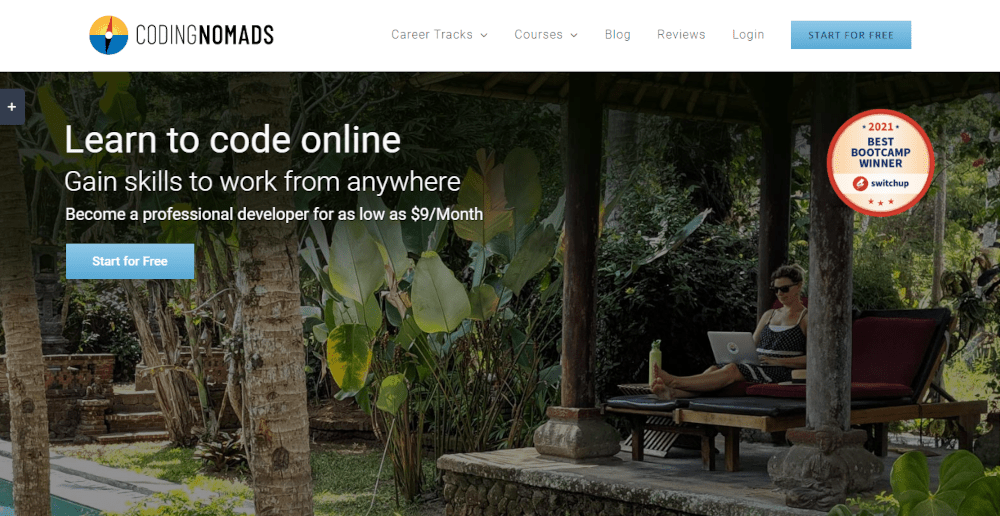
What’s the biggest benefit of taking your course?
There are generally two types of software engineering courses – self-paced “content-only” courses. These are low-cost and are completed on your own. Then there are intensive “coding boot camps” where you work with mentors at an accelerated pace. We offer both of these formats so that students can choose based on their learning styles, timelines, and budgets.
The biggest benefit and differentiator of our courses is the level of support students receive. Our low-cost self-paced subscription courses give students access to our forum. That’s where they can ask technical questions and get help from our team. Very few other schools offer this level of support for a low-cost self-paced course.
Many of our students have come to us from other boot camps because they were frustrated by the lack of personal help and support they received. - Ryan Desmond Click To TweetIn our intensive mentoring programs, students get unlimited 1:1 help from their personal mentors. They also get access to our entire team of mentors who are ready to answer questions 24/7. Learning to code and becoming a professional software engineer can be quite challenging. Our emphasis on personalized support is a huge factor in student success.
How did you get into the market?
After graduating high school I took some time to travel and fell in love with it. I decided to pursue a university degree in computer science I had the long-term dream of being able to work remotely and get paid while traveling.
After graduating and working as an engineer for many years in San Francisco / Silicon Valley, my wife Kim and I took our jobs on the road and traveled abroad. We met countless people who wished they had the skills to work remotely as we did. At my previous company, I trained professional software engineers in advanced Java and big data processing. I enjoyed teaching, and this made me think of the idea to teach people how to code. That way they could get great remote work.
Kim and I did some market research and saw that there were tons of schools teaching coding skills. But there weren’t many teaching the programming language that I know – Java.
Java has been one of the most in-demand programming languages for decades now. So we knew there would be demand to learn it. Kim’s background is in marketing, so we decided to join forces. We built a simple website and launched our first course in 2017.
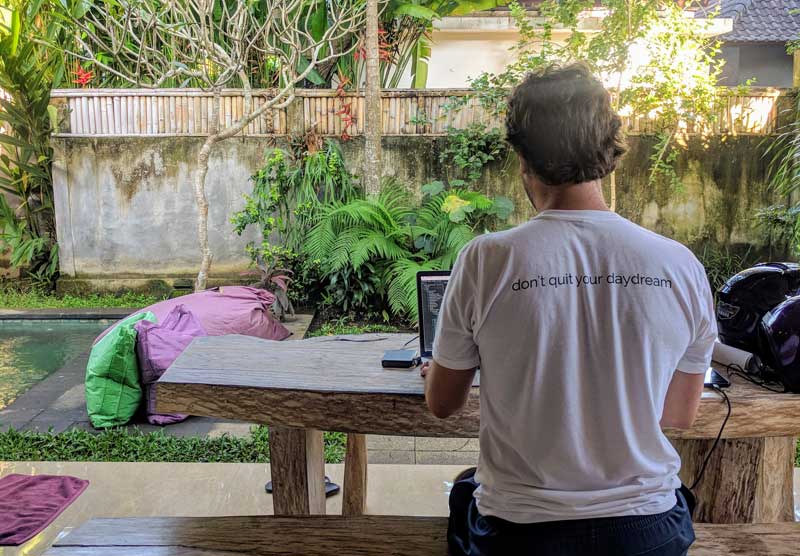
Why did you decide to create an online course in the first place?
CodingNomads actually started as an in-person code school. However, soon we realized that we’d have a much larger impact by also offering courses online. That way we could make learning to code affordable and accessible to people all over the world, not just those who could attend an in-person course.
So in 2018, we started building our online courses. These also served a double purpose of being prerequisites for attending our in-person programs. We started with our flagship programs – Java and Python. Then we also contracted additional authors to create our other courses.
Now we are able to offer free and low-cost coding courses online, in addition to our intensive mentoring programs.
Did you have any moments of doubt before you created/launched it?
We oscillate between moments of glory and moments of doubt every day!
In the coding world, there is a ton of content available online that teaches many of the same concepts, for free. - Ryan Desmond Click To TweetSo to spend hours, days, months, and even years building a highly technical curriculum that must compete with free content is daunting.
But all of that said, we knew there was still demand for more up-to-date, relevant, and structured content that takes a beginner all the way to a professional. We were confident that we could make a high-quality product that people would love. And we knew from our research that the market demand for this education is massive, so capturing even a tiny slice of that market could support a thriving business.
At the end of the day, we believe in what we do, and we have great student reviews that keep our fire fueled. This helps us push through the inevitable moments of doubt, and keep taking one step forward at a time.
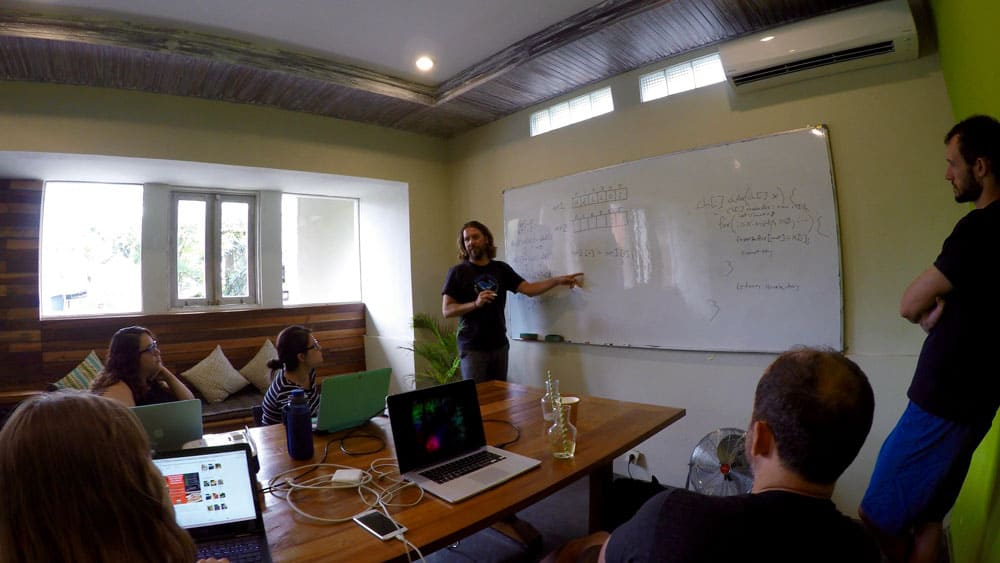
What’s your online course like?
Our courses are highly structured and broken into multiple sections and subsections, each that follow a “read something, watch something, do something” format. First, you’ll read technical documentation that explains a concept with written examples, screenshots, graphics, etc.
Then you watch a video that demonstrates how you implement that concept. The videos are in a screen share format, so you see exactly how the instructor uses all tools and methods.
After that, you have quizzes, labs, and project assignments so that you can do the coding yourself. With software engineering, it’s all about doing. You can read the documentation and watch the videos in no time, but in order to achieve a professional level of competency, you have to write the code again and again until it clicks. That’s why the labs and projects are the most important and effective part of our courses.
Some schools have you complete assignments inside their course learning platform, which unfortunately results in you losing your work after the course, and doesn’t adequately prepare you for the job. Our course assignments must be completed using real-world developer tools and development environments like GitHub. That way you get accustomed to using the tools you’ll need for the job, and you have all of your portfolio work saved on your machine.
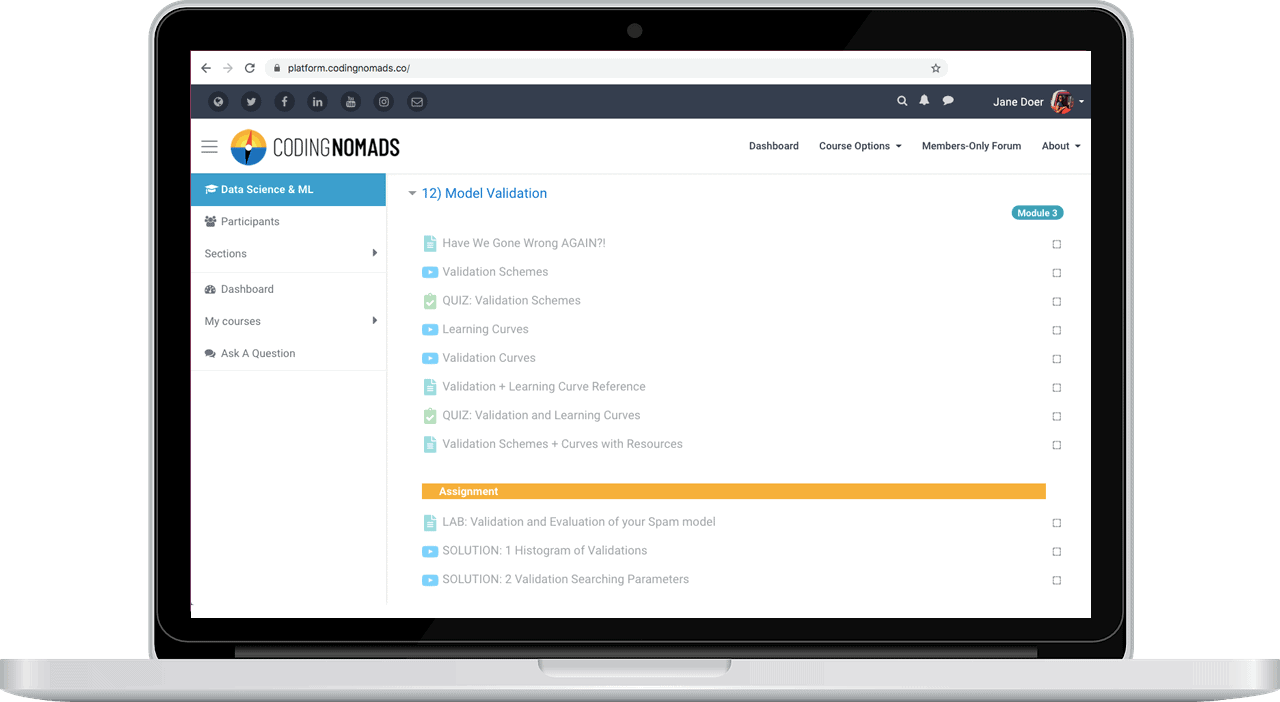
How long did it take you to create your course?
It took about 6 months to create the beta version of my online course. Luckily I had been teaching the curriculum in person for a couple of years, so I already had a good idea of the outline and the content that needed to be taught.
My process is all about iteration. I start with an outline, start brainstorming, and adding content to each section, then I go back and edit and refine. I completed all of the written documentation, labs, and project assignments before creating the videos.
My iterative process also meant that I did not strive for 100% perfection on the initial course. Instead, I focused on getting what I thought to be a solid beta version and then started enrolling students at a discounted price under… Click To TweetThis feedback process was invaluable so that I could really spend time fine-tuning based on actual student wants and needs, rather than trying to create a “perfect” course from my own perspective.
Tell us a little about the process of launching your course and getting your first sale(s).
When we were initially launching we learned that there are a couple of websites that aggregate all of the coding boot camps, where students can also leave reviews. We contacted those websites and got listed, and even got an interview with one of them. This helped a lot in building some visibility and credibility from the get-go.
We also reached out to some media outlets and contributed some blog posts to help build more visibility. We posted on Facebook and Reddit forums and spread the word through our personal networks. Each of our first sales came through several of these various channels and efforts, so we knew that it served us well to show up in as many places as possible.
Because of our course price when we first launched, all of our sales happened on the phone. I learned to ask about and understand people’s needs, so instead of selling my program, I was helping them determine if it was the right answer to solve their problems. This mindset helped take the pressure off those initial sales and find the right customers who were excited and ready to learn with us.
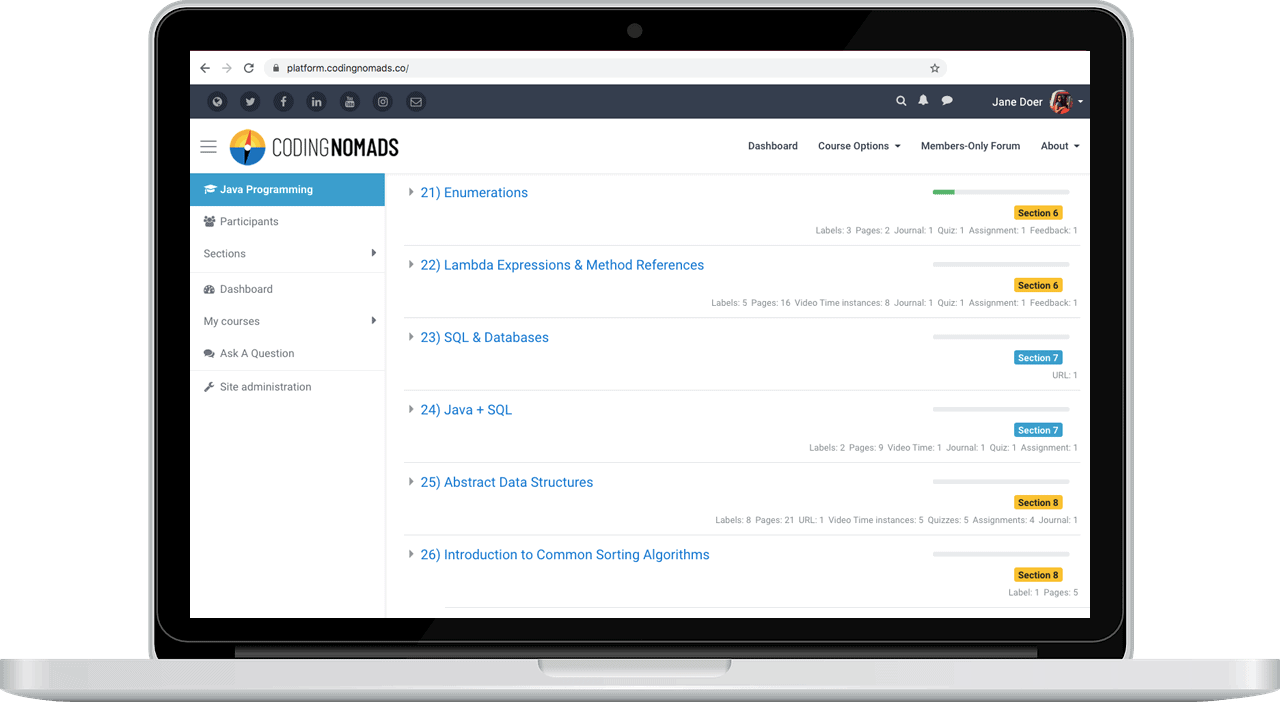
Do you have a lead magnet?
We have a “freemium” model where the beginning sections of all of our courses can be accessed for free on our learning platform. Once someone is logged into our platform we send a series of automated educational emails that provide more free resources, information, and help.
We also have lead magnets on our website – such as course syllabi and free training resources – which is another way leads are added to our email list. In all of our lead magnets and emails, we include a link to schedule a call with our team, which is when most of our sales happen. Including this scheduling, the link to schedule a call has been very effective in helping interested students speak with the right people to get their questions answered and take the next steps.
What’s the traffic strategy that works best for you?
SEO optimization is the most effective traffic strategy for us. We subscribe to an SEO keyword research tool called Keysearch, where you can research target keywords, find similar suggestions, and see the monthly search volume and difficulty score. This has helped us develop an effective content strategy, resulting in tens of thousands of website visitors every month, and thousands of users on our platform and mailing list.
What online course platform are you using?
We started with an open-source platform called Moodle, which is commonly used in universities around the world. Then we added quite a bit of custom functionality, design, and style. We chose this platform because of its high level of customization to fit our specific coding course needs, as well as the minimal cost to run it. We’re developers, so it makes sense for us to host and manage our own services rather than pay the higher fees on the plug-and-play style learning management systems.
Do you like it?
We do!
What other tools do you use to run your online course business?
In addition to Moodle, our website runs on WordPress, we use Google Suite for email, calendar, docs, spreadsheets, etc. We use Asana for project management, Slack for collaboration, Mailerlite for email communication, Calendly for lead scheduling, Stripe for payments, Zapier for integrations and automation, Facebook Business Manager, TopTracker for contractor time tracking & invoicing, Wise for paying contractors, Wave for accounting, the list goes on!
Do you have any big mistakes you’ve made along the way that you’d be willing to share?
In one of our first courses, we were coordinating with an international vendor via email. Somehow their email was compromised and we received payment details from someone else. We made the payment of thousands of dollars, only to find out a few weeks later that the vendor never received the payment, nor were they willing to give us the same price that we had been quoted by and paid to the hacker. It was a bit of a financial setback, but it could have been much worse and taught us a valuable lesson – never send payments without speaking to someone to verify!
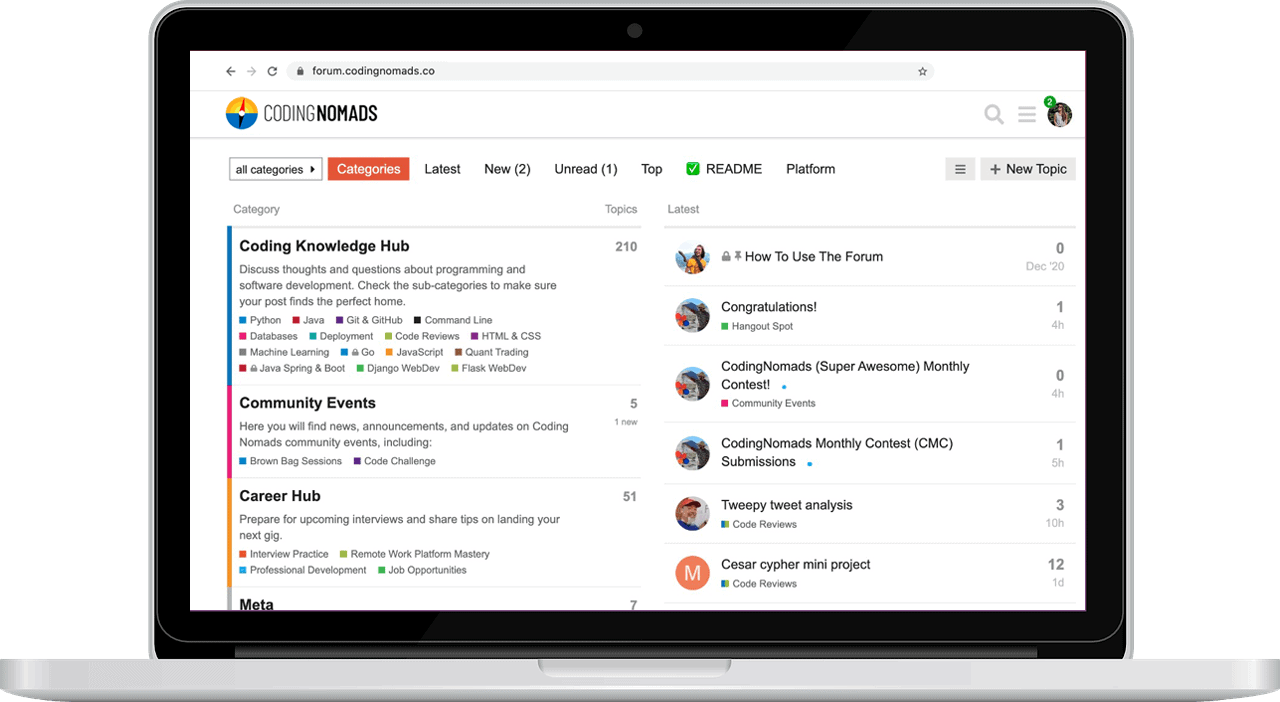
Please share some idea of revenue.
Before COVID we were running a 6 figure business. However, online sales only made up about 5-10% of our annual revenue. For the first few months when everything shifted online, we were making less than $5k/month in sales. Although COVID hurt our business at first, it also resulted in amplified demand for online education. Our revenue increased each quarter after transitioning online, and now we are on track to exceed our previous in-person annual revenue.
Please tell us a little about what the money you’ve earned from your course has done for you.
One of the biggest reasons we started CodingNomads was to have the freedom to work remotely and travel, and we have done just that. We now have a team of more than 15 people around the world, and we all really enjoy the work we do! While we do work long hours, we also have the flexibility to take breaks whenever we want – to go camping, river rafting, or just take a down day when needed.
In addition to revenue are there any numbers you would like to share?
CodingNomads ranked the #7 coding boot camp in the world for 2021, based on SwitchUp student reviews! Being a small, family-run code school, this was a huge accomplishment for us. In the past years since we started, the top 10 spots have generally been occupied by the larger, investor-owned boot camps. But based purely on student review rankings, we were able to rise to the top. This ranking gave us the visibility we needed to compete with the larger more established programs when transitioning to an online format.
In addition, earlier this year we added a low-cost subscription option to our courses. There was a lot of technical work that needed to be done to make this happen. We didn’t really publicize the switch in order to not overwhelm the system. Since we switched, however, the subscriptions started rolling in. Not only does this help us achieve our goal of making learning to code highly affordable and accessible, but these subscriptions will continue to grow over time for an additional revenue stream.
Do you have a story of a transformation from any of your clients?
Our client success stories are the reason we continue doing the work we do.
One of my favorite stories is about a grad named Donda. Donda joined our program in 2018 with no previous coding experience. He’d been running his own company for several years, but his brother fell ill and he needed a stronger income to support his family. He took our program very seriously, and afterward took ANY coding job he could get. He actually started as a WordPress developer even though he learned Java engineering with us. But he continued working hard and working his way up.
Now Donda is living in Singapore and working as a senior Python and PHP software engineer. He even conducts the hiring interviews for other software engineers at his company. He is now able to care for his family, and since our program, he got married and bought a house. We’ve kept in close touch over the years. In 2020 when we expanded our online offerings, Donda joined our team as a mentor. He still works full-time at his other job. But he loves helping more students follow the same path that he found so much success with.
Donda’s story is just one of many inspiring stories that we hear from our students. For people who are interested in tech, and are willing to work hard, learning to code is absolutely a door opener. You can earn a better salary and a better career doing work that inspires you.
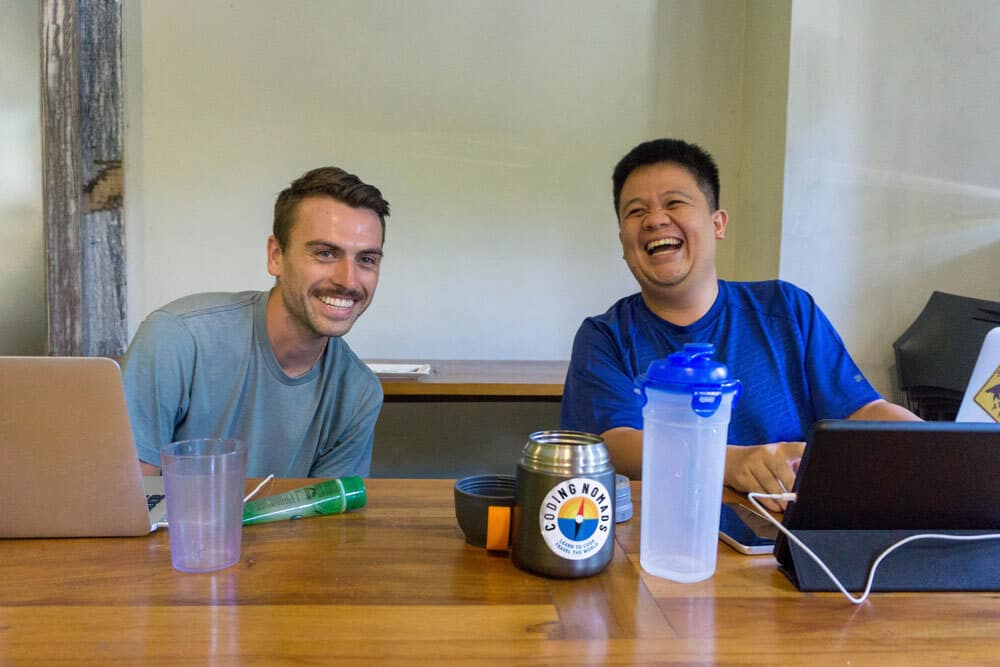
What advice do you have for people just starting out?
If you are passionate about something, do it. It will take time, and it won’t always be easy. But if you just keep pushing, keep working, and keep believing, you can and will succeed.